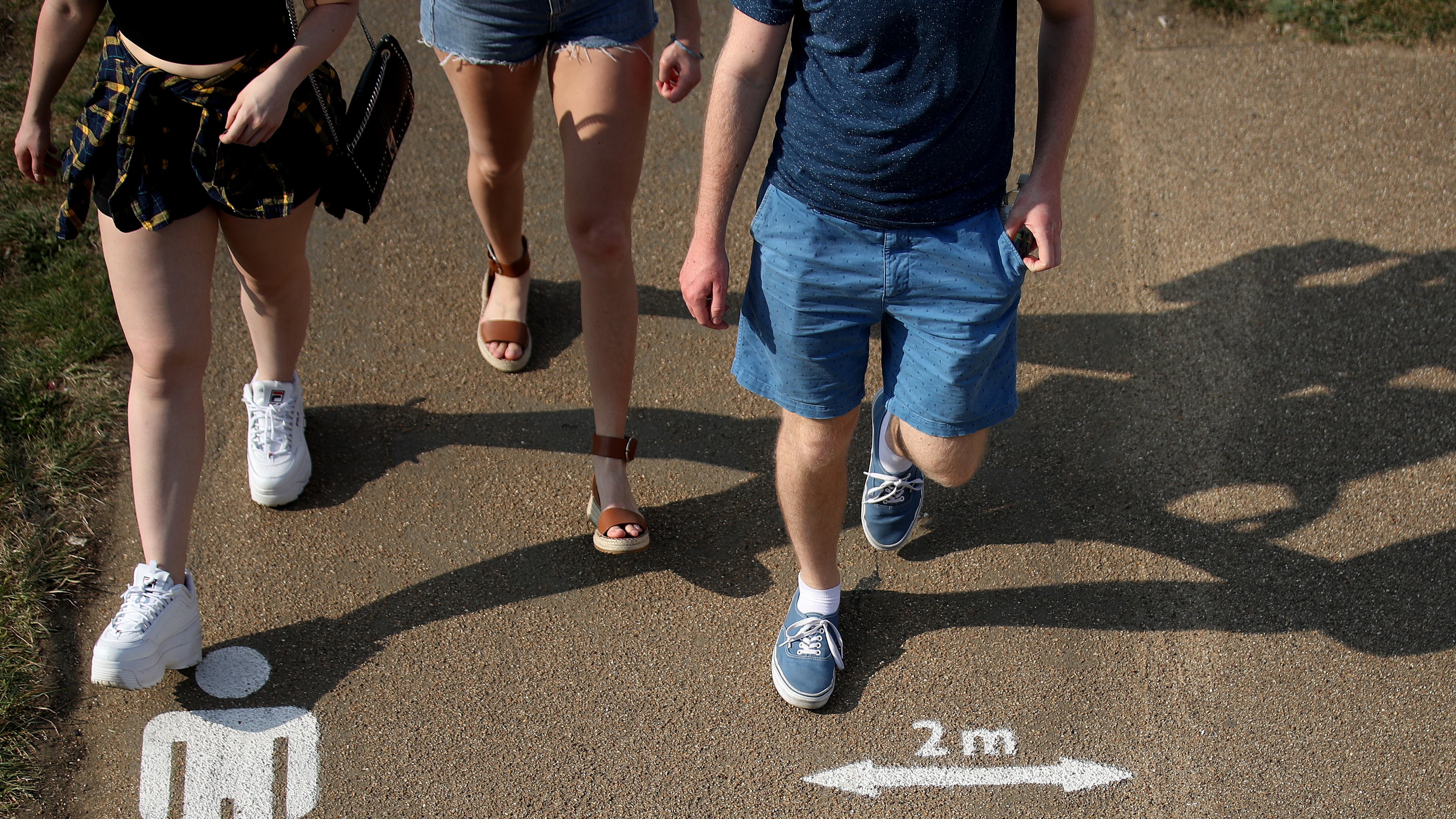Coronavirus: what is the R value and why does it matter?
Boris Johnson says Britain has reached coronavirus peak as R value falls

A free daily email with the biggest news stories of the day – and the best features from TheWeek.com
You are now subscribed
Your newsletter sign-up was successful
Boris Johnson has pledged to explain next week how schools and workplaces will safely reopen once lockdown restrictions are eased, as he claimed the UK was past the peak of the coronavirus outbreak.
Despite announcing an increase of 674 in the death toll of the virus, the prime minister suggested the worst was over.
The Guardian notes that Johnson “laid particular emphasis on the R value”, a figure the government has been attempting to keep below 1.
The Week
Escape your echo chamber. Get the facts behind the news, plus analysis from multiple perspectives.

Sign up for The Week's Free Newsletters
From our morning news briefing to a weekly Good News Newsletter, get the best of The Week delivered directly to your inbox.
From our morning news briefing to a weekly Good News Newsletter, get the best of The Week delivered directly to your inbox.
But what is the R value - and why does this figure hold the key to ending the lockdown?
What is an R value?
The R value - also known as R0 or R naught - refers to the average number of people that one infected person will go on to infect. As such, it is a measure of how transmissible, or contagious, a disease is - but not how deadly.
Scientists use the R value to “predict how far and how fast a disease will spread, and the number can also inform policy decisions about how to contain an outbreak”, says the Daily Express.
A free daily email with the biggest news stories of the day – and the best features from TheWeek.com
As Business Insider notes, an R value of one means the “average person who gets that disease will transmit it to one other person” - or in other words, the disease is spreading at a stable rate.
But “an R0 of more than one means the disease spreads exponentially”, the news site adds.
Diseases with exceptionally high R values include measles, with an average estimated value of 18, and mumps, with a value of ten, Healthline reports.
Although government advisers have suggested that the UK’s R value for the new coronavirus is stable or even dropping, modelling has shown that in most cases where lockdown measures are lifted, the R value quickly rises above one.
This was seen in Germany, which last week considered the reintroduction of strict lockdown measures after Chancellor Angela Merkel warned that hospitals in Germany could be overwhelmed by the end of June if the R value rises even slightly.
–––––––––––––––––––––––––––––––For a round-up of the most important stories from around the world - and a concise, refreshing and balanced take on the week’s news agenda - try The Week magazine. Start your trial subscription today–––––––––––––––––––––––––––––––
What is the current situation in the UK?
The Guardian reports that the government’s scientific advisers currently believe the R value to be “between 0.6 and 0.9”. However, England’s chief medical officer, Chris Whitty, has urged caution.
“As soon as R goes over one, then you restart exponential growth – it may be slow if it is just over one, it may be a lot faster if it goes a lot above one – but exponential growth restarts and, sooner or later – and the higher it is, the sooner it is – the NHS will go back to the risk of being overwhelmed and the number of cases will go up,” Whitty told yesterday’s daily briefing.
As Sky News notes, decreasing the rate of infections to a “manageable level” is one of the government’s five tests that must be satisfied before the lockdown is lifted.
“The number of confirmed cases of coronavirus has been steadily decreasing,” the broadcaster says, “although it is accepted that the true number of cases is likely to be much higher than the reported amount”.
-
 How the FCC’s ‘equal time’ rule works
How the FCC’s ‘equal time’ rule worksIn the Spotlight The law is at the heart of the Colbert-CBS conflict
-
 What is the endgame in the DHS shutdown?
What is the endgame in the DHS shutdown?Today’s Big Question Democrats want to rein in ICE’s immigration crackdown
-
 ‘Poor time management isn’t just an inconvenience’
‘Poor time management isn’t just an inconvenience’Instant Opinion Opinion, comment and editorials of the day
-
 Epstein files topple law CEO, roil UK government
Epstein files topple law CEO, roil UK governmentSpeed Read Peter Mandelson, Britain’s former ambassador to the US, is caught up in the scandal
-
 Iran and US prepare to meet after skirmishes
Iran and US prepare to meet after skirmishesSpeed Read The incident comes amid heightened tensions in the Middle East
-
 Israel retrieves final hostage’s body from Gaza
Israel retrieves final hostage’s body from GazaSpeed Read The 24-year-old police officer was killed during the initial Hamas attack
-
 China’s Xi targets top general in growing purge
China’s Xi targets top general in growing purgeSpeed Read Zhang Youxia is being investigated over ‘grave violations’ of the law
-
 Panama and Canada are negotiating over a crucial copper mine
Panama and Canada are negotiating over a crucial copper mineIn the Spotlight Panama is set to make a final decision on the mine this summer
-
 Why Greenland’s natural resources are nearly impossible to mine
Why Greenland’s natural resources are nearly impossible to mineThe Explainer The country’s natural landscape makes the task extremely difficult
-
 Iran cuts internet as protests escalate
Iran cuts internet as protests escalateSpeed Reada Government buildings across the country have been set on fire
-
 US nabs ‘shadow’ tanker claimed by Russia
US nabs ‘shadow’ tanker claimed by RussiaSpeed Read The ship was one of two vessels seized by the US military